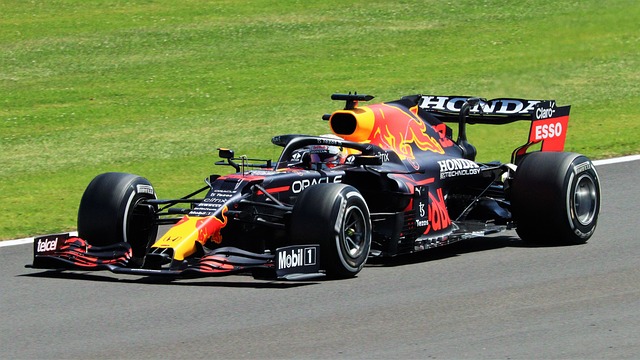Donald Trump made a notable appearance at last year’s Miami Grand Prix, using the Formula 1 platform to bolster his campaign for a second presidential term. Following Lando Norris’s first victory, Trump positioned himself as a good luck charm for the young driver. Given that his Mar-a-Lago estate is located just about 100 kilometers from the Hard Rock Stadium, this visit was a convenient side trip for him.
According to the local newspaper, Palm Beach Post, Trump is currently back in Florida and is not expected to leave his residence until Sunday. This has sparked speculation about a potential visit to the Miami International Autodrome. Regardless of whether he shows up at the race, his economic policies are creating significant uncertainty for Formula 1.
Concerns in Colorado
There are several reasons for this unease. The high-profile motorsport series is owned by the U.S. media company Liberty Media. Fluctuations in the value of the dollar and stock prices due to unexpected decisions from Trump can lead to concerns at Liberty’s headquarters in Colorado, especially since Formula 1 is publicly traded.
Three out of 24 races (Miami, Austin, and Las Vegas) take place in the United States, where many wealthy sponsors are based. The Haas team, representing a U.S. racing operation, is currently joined by Cadillac, which will enter the sport in 2026. Additionally, Red Bull will partner with U.S. automotive manufacturer Ford starting next year.
Hiring Freeze at Haas
Cadillac is part of General Motors (GM), which has been significantly affected by Trump’s tariff policies and uncertainties in global trade. GM recently announced it is facing billions in costs, leading to lowered profit forecasts. Even after the recently approved easing of tariffs on imported auto parts, the company expects to incur losses of four to five billion dollars, according to CEO Mary Barra’s letter to shareholders.
Haas, a machinery manufacturer, has also reported a dramatic drop in demand for its products due to Trump’s tariffs, prompting them to reduce production and eliminate overtime. A hiring freeze has also been implemented. However, the PR department of Haas reassured that everything is continuing normally within its Formula 1 team.
Team Principal: A “Socioeconomic Experiment”
The impact of U.S. tariffs is not significantly felt by Formula 1 teams based in England, Italy, and Switzerland, as these teams source few components from the U.S. However, North America remains a crucial market for automakers like Ferrari and Mercedes, and the real implications for their Formula 1 divisions may emerge later.
Mercedes team principal Toto Wolff commented on the situation, describing the global events as akin to a socioeconomic experiment. He noted that the mood among some U.S. partners is negative due to uncertainty about how tariffs and geopolitical factors will affect their businesses. Fortunately, the Formula 1 team has not yet been impacted.
From Tobacco Bans to the Pandemic
Globalization and supply chains are deeply embedded concepts within motorsports. The sport has navigated numerous significant challenges in the past two decades, including the EU’s ban on tobacco sponsorship, the 2008 financial crisis, and the global pandemic, according to Mark Gallagher, a long-time Formula 1 manager and current industry analyst.
Gallagher emphasized that the uncertainty surrounding U.S. relations with the rest of the world and the economic effects of Trump’s tariffs are of great importance. He believes this will ultimately impact Formula 1, affecting both automakers and sponsors.
Strategies for Uncertain Times
In these uncertain times, teams that receive substantial payouts from the Formula 1 rights holder in dollars must find ways to safeguard themselves. Williams team principal James Vowles highlighted the lessons learned from the pandemic, stressing the importance of ensuring a diverse range of suppliers to mitigate risks.
Some teams are diversifying their risk by structuring driver salaries in both dollars and euros. Vowles noted, „I’m not sure what other teams are doing, but structuring contracts this way seems smart to us.“











Weitere Nachrichten
Max Verstappen Returns to F1 Training in Miami After Birth of Daughter
Formel 1 verlängert Vertrag mit Miami bis 2041
Max Verstappen wird erstmals Vater: Tochter Lily geboren